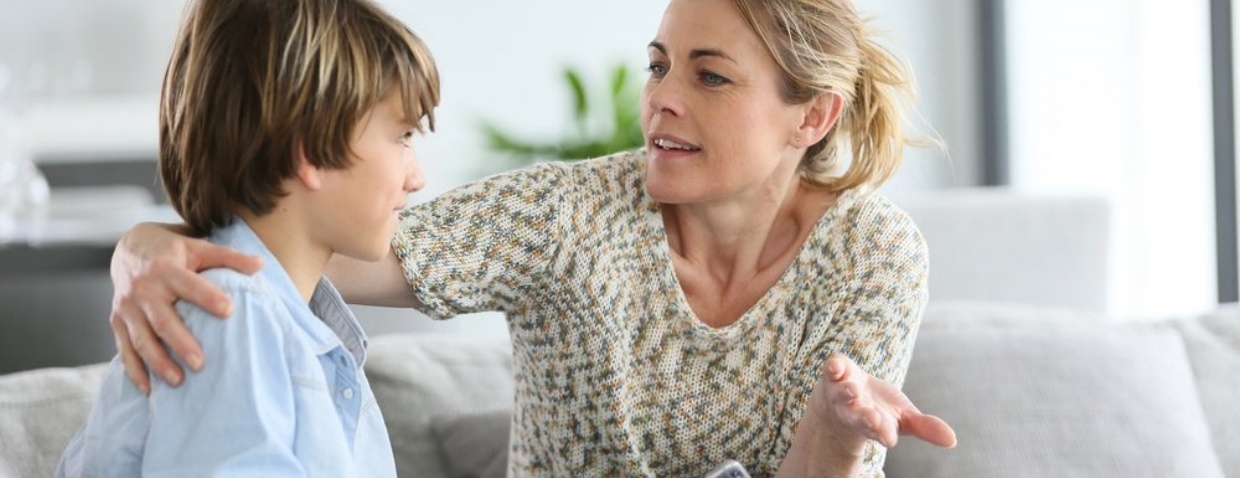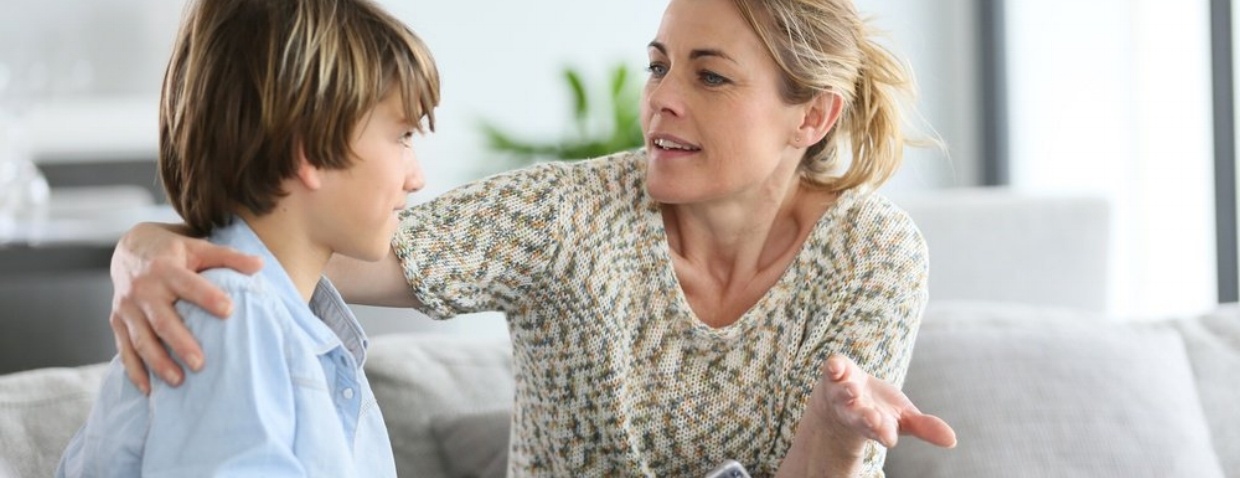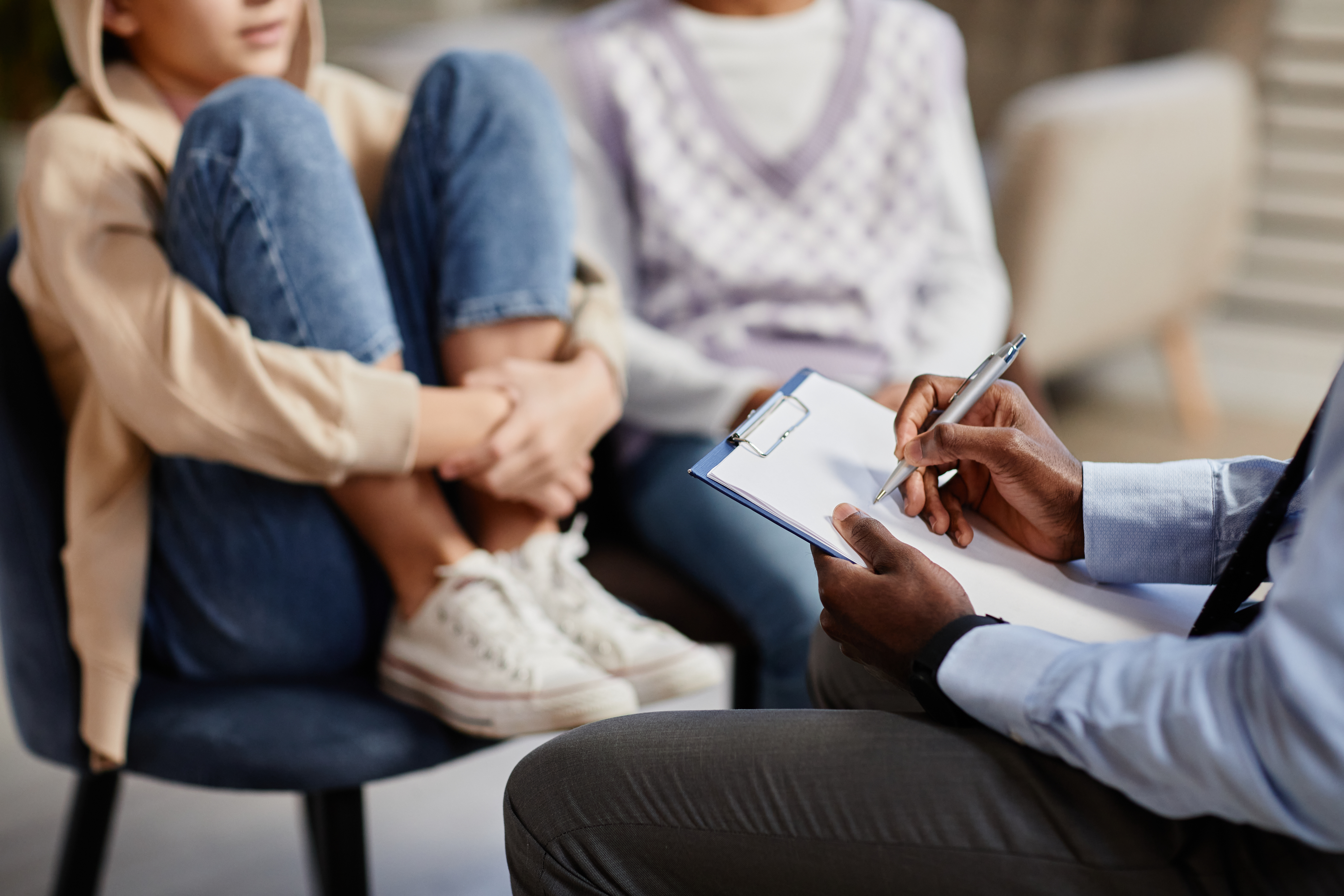Idaho Youth Ranch
Subscribe to our blog

One of the most common mistakes parents make is attempting to maintain an aura of parental perfection, fearing that either kids will use mistakes against them later, or won’t respect their authority. It can be scary to be vulnerable and “human” in front of your kids by apologizing and admitting fault. But it’s also one of the most important ways you can form a healthy relationship based on mutual respect.
Kids need to understand that sometimes even parents make mistakes, and that you’ll take their feedback and feelings into account when you make an error or treat your child unfairly. There’s no such thing as a perfect parent--just a parent who respects his or her child enough to say “I’m sorry” when mistakes do happen.
Here are three big reasons why your apology matters, and some tips on how to apologize the right way.
It Builds Trust
Apologizing when you’re wrong builds trust with kids by letting them know that you’ll stand firm when they need to be corrected, but that you’ll also level with them if you’re mistaken. Suspicion, resentment, and mistrust can easily develop if kids see a pattern of “sticking to your guns” even when it’s clear you’re not correct or that you have treated your child unfairly. Children are also less likely to apologize themselves, even when they know they’ve made an error, if concealing mistakes and refusing to acknowledge errors is the norm. Build a foundation of respect and trust with your child by taking responsibility when the error is yours.
It Models How to Apologize
Modeling behavior is especially important when it comes to apologizing to your child. It’s not easy for adults or children to get vulnerable and admit to a mistake. But seeing your example of bravery and vulnerability will give kids the courage and the model for apologizing themselves when it’s needed. Self-protection is a powerful human drive--but it’s not always to our benefit. The memory of how it feels to hear a sincere apology from a parent can be just the boost kids need later down the line to admit fault and make their own apologies even if they’re afraid of the consequences.
It Teaches 'Failing Forward'
While apologizing to your child can feel scary and uncomfortable in the moment, think of it as “failing forward.” Mistakes, errors, or human failures are part of life--but by addressing them appropriately by apologizing to your child, you’ll move your relationship forward in a positive direction. Why? Because when you apologize to your child, you actually strengthen your bond by validating your child's feelings and teaching them that mistakes are okay as long as you take responsibility and learn from those mistakes. Apologizing also helps you and your child move forward in a stronger relationship by helping your child see you as approachable and trustworthy. In other words, when your child makes a mistake or is having trouble, he or she is more likely to come to you.
Apologizing is hard for everyone--parents and children alike. But the rewards in building a respectful, strong relationship with your child, and in helping your child learn the tools to succeed in life and relationships couldn’t be more important!
How to Apologize to Your Child
Apologizing shouldn't be a big spectacle. In fact, being able to apologize often and with heart sets a great example for your children.
Let yourself be vulnerable with your child, first and foremost. It's okay that you make mistakes--you are human, after all!
When formulating your apology, make sure you let your child know:
- You take responsibility for what you did
- You recognize how it impacted them
- You understand why it happened (not as an excuse, but as self-awareness that will help you to do better)
- You won't let it happen again
Be sure to say, "I'm sorry," and don't be defensive when you say it. Though it can be difficult to admit when you're wrong, modeling this behavior will set your child up for long-term success and facilitate their own self-awareness about how their words and behaviors affect others.
Interested in what you see here? Idaho Youth Ranch offers parenting classes to help parents develop skills to build and maintain positive relationships with their kids. Join our parenting gurus for this series where you can learn skills, ask questions, and have discussions in a non-judgmental, relaxed environment.
Check out this blog post for all 10 Things Your Kids Need to Hear You Say!






Leave a Comment